FOOD
29 Things About Dieting That Everyone Always Gets Wrong
Published
2 months agoon
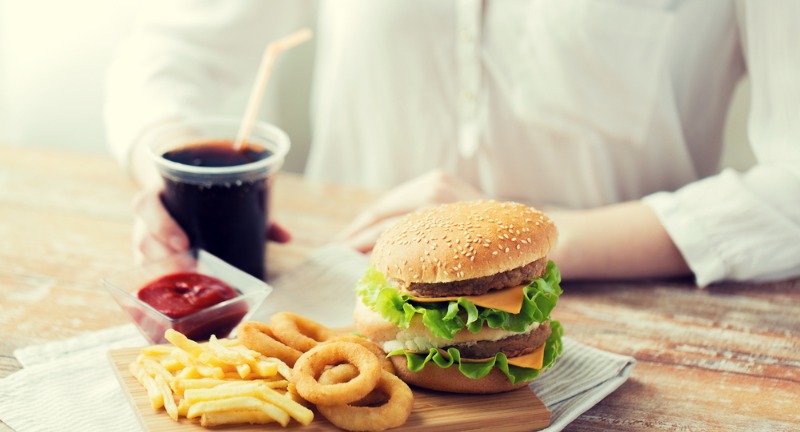
Shutterstock
We’ve all heard the diet “facts” tossed around like free samples at the grocery store—some sound reasonable, others downright wild. From magical superfoods to the idea that one cheat day can destroy your progress (relax, it won’t!), it’s easy to get lost in a maze of misinformation. The truth? Most of these myths need to be tossed out with last week’s kale. So grab a snack and let’s set the record straight on the most common diet myths everyone seems to get wrong.
Carbs are always bad

Shutterstock
Carbs get a bad rap, but labeling them as “bad” is like blaming a chair for being uncomfortable when you’re sitting on it backwards. Not all carbs are created equal—there’s a big difference between the fiber-packed goodness of whole grains and the sugary emptiness of a candy bar. Your body actually needs carbs for energy; they’re the fuel behind brainpower and those marathon TV binge sessions. So instead of cutting carbs entirely, focus on choosing smarter sources, like quinoa and sweet potatoes. Trust me, your brain—and your taste buds—will thank you.
Fats make you fat

Shutterstock
Blaming fat for making you fat is like blaming your umbrella for the rain—it’s just not how it works. Your body needs fats for important jobs like absorbing vitamins, regulating hormones, and keeping your skin from looking like a dried-up leaf. The real culprits are excess calories and poor food choices, not the healthy fats in avocados or olive oil. So, don’t fear fat—just avoid the deep-fried everything diet unless you’re aiming to get the ball rolling on the slippery slope of poor nutrition.
Skipping meals helps you lose weight

Shutterstock
Skipping meals to lose weight is like trying to save gas by not putting any in your car—you’re not getting anywhere, and eventually, you’ll stall out. Sure, you might eat less in the short term, but your body isn’t a fan of starvation mode. Instead of burning fat, it starts clinging to it like a toddler with their favorite toy. Plus, skipping meals often leads to late-night fridge raids that make your “diet” look like a buffet. Moral of the story? Eat your lunch—it’s cheaper than therapy and snacks at midnight.
Eating late at night causes weight gain

Shutterstock
Eating late at night doesn’t automatically pack on the pounds, but it can throw a wrench in your metabolism’s gears, especially if you’re snacking on chips and ice cream instead of something more balanced. It’s not about the time, but more about what and how much you eat. If you’re scarfing down a huge meal right before bed, your body might have trouble digesting it, leading to disturbed sleep and, potentially, extra calories being stored as fat. But if your late-night snack is a small, healthy option—think Greek yogurt or a handful of nuts—you’re not automatically doomed to a midnight weight gain disaster. So go ahead, snack smart, and let your body do its thing without the guilt trip.
You can “spot reduce” fat

Shutterstock
“Spot reduction” is the idea that you can target fat loss in specific areas of your body, like wishing away belly fat by doing endless crunches. If only it were that easy, right? Unfortunately, your body doesn’t work on a “pick and choose” basis when it comes to burning fat. When you lose weight, it comes off from all over—your arms, legs, and yes, even that stubborn belly area, but not just because you did 100 sit-ups. The key is consistent exercise, healthy eating, and patience—so don’t get discouraged by the stubborn areas; they’re just taking their sweet time to leave the party.
Detox teas cleanse your body

Shutterstock
Detox teas claim to “cleanse” your body, but let’s be real—your liver and kidneys have been doing the heavy lifting in that department since you were born. While sipping that trendy tea might make you feel like you’re doing something good for yourself, it’s not going to magically flush out toxins like a fancy pipe cleaner. In fact, most detox teas just have a laxative effect—so you’ll probably spend more time in the bathroom than on your yoga mat. Stick to water, healthy food, and exercise for a real cleanse—your body’s already got the cleaning part down, no tea required!
Going gluten-free leads to weight loss

Shutterstock
Going gluten-free doesn’t automatically lead to weight loss, just like buying a new gym membership doesn’t mean you’ll suddenly become an Olympic athlete. While some people might lose weight by cutting out gluten because they’re avoiding processed foods or eating more whole foods, others simply swap gluten-laden junk for gluten-free junk food. Plus, gluten-free products often have just as many calories and sugar as their gluten-filled counterparts. So, if you’re thinking of going gluten-free to shed pounds, focus on eating whole grains, vegetables, and lean proteins—your waistline—and wallet—will thank you!
Low-fat foods are healthier

Shutterstock
Low-fat foods are often marketed as the healthier option, but let’s not be fooled—sometimes “low fat” just means “extra sugar.” When fat is stripped out of a product, something usually has to replace it, and that something is often sugar or artificial additives to make up for the taste. Your body needs healthy fats for brain function, heart health, and keeping your skin from looking like a raisin. So, instead of blindly reaching for the low-fat label, aim for whole foods with good fats, like avocados and nuts.
All calories are equal

Shutterstock
The idea that all calories are equal is like saying all cars drive the same, no matter the make or model. Sure, a calorie is a unit of energy, but how your body processes it can vary depending on the source. For example, 100 calories from a sugary soda are processed very differently than 100 calories from a handful of almonds. The soda may cause a blood sugar spike, while the almonds provide healthy fats, fiber, and sustained energy. So, when it comes to calories, quality matters as much as quantity!
Crash diets are sustainable

Shutterstock
A crash diet is a quick-fix eating plan where you drastically cut calories in a short period, hoping for rapid weight loss. Think extreme restrictions—like barely eating, cutting out whole food groups, or living off soup broths for days. The problem? While you might drop a few pounds fast, crash diets aren’t sustainable and often lead to a rebound once you start eating normally again. Your metabolism can slow down, and you may end up losing muscle instead of fat, which makes keeping the weight off even harder. So, while it might feel like a fast track to success, you’re more likely to end up on a never-ending diet rollercoaster!
High-protein diets damage your kidneys

Shutterstock
High-protein diets have earned a bit of a bad reputation when it comes to kidney health, but unless you’re chowing down on protein like it’s your full-time job, you’re probably safe. For most people, the kidneys are more than capable of handling the protein load, especially if you’re healthy to begin with. It’s only in extreme cases—like for those with pre-existing kidney issues—that too much protein could become a problem. So, unless you’re planning on turning into a human steak, don’t sweat it—your kidneys aren’t plotting against you.
Diet soda helps with weight loss

Shutterstock
Diet soda might sound like a weight-loss miracle in a can, but it’s more like that one friend who promises to bring chips to the party and shows up with just a bag of air. While it’s low in calories, diet soda can trick your brain into craving more sweet stuff, possibly leading you to overeat. Plus, some studies suggest that the artificial sweeteners might mess with your metabolism or appetite regulation. So, while you might save a few calories, you’re probably better off sticking to water, unless you’re trying to set a world record for most artificial sweeteners consumed.
Eating “clean” is always the answer

Shutterstock
“Eating clean” is often thrown around like it’s the magic key to health, usually referring to eating whole, unprocessed foods and avoiding anything that doesn’t come straight from the earth. While the idea of eating fresh veggies and lean proteins sounds great in theory, this can get pretty unrealistic for most people—especially if it turns into a strict rule of “no fun foods ever.” The truth is, it’s about balance, not perfection. Eating clean all the time isn’t always sustainable, and occasionally indulging in your favorite pizza or ice cream isn’t going to send you into a nutritional spiral. So, go ahead and enjoy a burger without guilt—life’s too short to say no to a good meal!
You must cut out entire food groups

Shutterstock
While some trendy diets make it sound like eliminating carbs, fats, or dairy is the path to enlightenment, your body’s not exactly on board with the “no pizza, no pasta” life. Your body needs variety for balance—so unless you’re allergic to something (or just plain don’t like it), there’s no reason to ban entire food groups like some kind of food dictator. Let’s be real: if cutting out chocolate were the answer to perfect health, we’d all be supermodels by now.
Eating more often speeds up your metabolism

Shutterstock
Your metabolism is basically the system that burns the fuel you put into your body and turns it into energy. It’s like the engine of your car—some people’s engines rev a little faster than others, but everyone needs gas to keep running. The idea that eating more often speeds up your metabolism is kind of like thinking if you feed your car more gas, it’ll go faster. The truth? It’s not the number of meals that matters—it’s the quality of what you eat and how active you are. So, no need to snack every two hours unless you’re genuinely hungry. Your metabolism will keep chugging along just fine!
Juicing is the best way to lose weight

Shutterstock
Juicing is the process of turning fruits and veggies into liquid form, often touted as a way to flood your body with nutrients in one glass. While it sounds healthy, it’s kind of like giving your body all the good parts of a fruit and leaving behind the fiber, which is key for keeping you full. The idea that juicing is the best way to lose weight is a bit like hoping you can solve a puzzle by only using one piece—you’re missing the bigger picture. Sure, juices can be packed with vitamins, but they’re also high in sugar and lack the balance your body needs to stay full and energized. So, if you want to lose weight, focus on whole foods instead of gulping down sugar water in a fancy bottle.
Supplements can replace real food

Shutterstock
Supplements are great for filling in the gaps, but thinking they can replace real food is like using a band-aid to fix a broken leg—it’s just not the same. Sure, a multivitamin can help, but nothing beats the actual nutrients you get from whole foods like fruits, veggies, and lean proteins. Real food comes with fiber, antioxidants, and a bunch of other magical stuff that supplements can’t fully replicate. So, while popping a pill might feel like a shortcut, you’re missing out on the full nutritional experience—kind of like trying to enjoy a concert with headphones instead of the real live show.
Sugar-free means healthy

Shutterstock
Sugar-free doesn’t automatically mean healthy—it’s often just sugar replaced by artificial sweeteners, which can mess with your taste buds and make you crave more sweetness. Some sugar-free products also contain unhealthy additives or extra fats to make up for the lack of sugar. Just because something is labeled sugar-free doesn’t mean it’s a free pass to eat it guilt-free. Always check the ingredients—sometimes “sugar-free” is just a different kind of trickery.
Organic food has fewer calories

Shutterstock
Just because food is organic doesn’t mean it’s low-calorie—sorry, but that organic cookie is still a cookie! Organic foods are grown without pesticides or synthetic fertilizers, but they don’t automatically have fewer calories. A calorie is a calorie, no matter how it’s grown. So while choosing organic is great for other reasons, don’t expect it to magically melt away the pounds.
Vegan diets guarantee weight loss

Shutterstock
A vegan diet doesn’t automatically guarantee weight loss—it’s all about what you eat, not just what you avoid. Sure, cutting out meat and dairy may reduce calorie intake, but if you load up on processed vegan junk food or oversized portions of pasta, you won’t see the scale move. A vegan diet can absolutely support weight loss if it’s balanced with whole foods, but it’s not a magic trick. Eating plant-based? Great! Just make sure it’s healthy, not just vegan.
Cheat days ruin progress

Shutterstock
The idea that cheat days ruin all your progress is like saying one bad hair day will ruin your entire life—dramatic, but not true. Sure, if you eat a whole pizza, followed by a mountain of cake, followed by a second pizza, it might slow down your progress, but one cheat day won’t erase weeks of hard work. The key is not turning “cheat day” into “cheat week”—so go ahead and indulge, just don’t let it turn into a full-on food festival.
A diet works the same for everyone

Shutterstock
The idea that one diet works the same for everyone overlooks the complexity of individual metabolism, genetics, and lifestyle. What works for one person might not work for another because factors like age, activity level, and even gut bacteria can influence how we process food. Our bodies are all uniquely wired, so a one-size-fits-all approach is bound to fall short. The best diet is one that’s tailored to your needs, not a blanket plan pulled from the latest trending hashtag.
You can out-exercise a bad diet

Shutterstock
You can’t out-exercise a bad diet—trust me, no amount of burpees is going to burn off that double cheeseburger you ate for breakfast. Exercise is crucial for health, but it can’t make up for consistently poor food choices. Nutrition is the foundation; without it, even the most intense workout routine will struggle to make a lasting impact. Think of it this way: You can’t outrun a bad diet any more than you can outrun your own shadow!
Losing weight is about willpower alone

Shutterstock
Losing weight isn’t just about willpower—it’s about understanding how your body works, and willpower alone won’t override biology. Sure, motivation helps, but factors like your metabolism, hormones, sleep quality, and stress levels all play a huge role in weight loss. You could have the strongest willpower in the world, but if you’re not eating enough to fuel your body, or if you’re stressed out and not sleeping well, you’re fighting an uphill battle. It’s not just a mental game—it’s about finding balance, consistency, and smart choices over time.
Superfoods will “fix” your diet

Shutterstock
Superfoods like kale, blueberries, avocados, chia seeds, and salmon are often touted as miracle foods, but they’re not going to fix a bad diet on their own. While they’re packed with nutrients, they need to be part of a balanced, varied diet to truly make a difference. Relying solely on these foods won’t give you the results you’re looking for if the rest of your meals are filled with processed junk. Superfoods are great, but they’re just one piece of the puzzle—don’t expect them to do all the heavy lifting!
The scale tells the whole story

Shutterstock
The scale doesn’t tell the whole story—it’s more like a rough draft of your health journey, not the final chapter. Weight can fluctuate for a bunch of reasons: water retention, muscle gain, or even the time of day. So, while the number on the scale might give you some info, it won’t reveal things like body composition or overall wellness. Focus on how you feel, how your clothes fit, and other signs of progress—there’s way more to the picture than just a number!
All fat is unhealthy

Shutterstock
Not all fat is unhealthy—your body actually needs healthy fats to function properly. Unsaturated fats, found in foods like avocados, olive oil, and nuts, are essential for heart health, brain function, and nutrient absorption. On the other hand, trans fats and excessive saturated fats, often found in processed foods, can contribute to health problems like high cholesterol and heart disease. The key is focusing on quality fats and balancing them with other nutrients, rather than avoiding fat altogether. Healthy fats are a vital part of a well-rounded diet—they just need to be enjoyed in moderation.
Healthy food always tastes bad

Shutterstock
The idea that healthy food always tastes bad is like saying all fast food is gourmet—both are a bit of a stretch! Sure, kale might not be as exciting as a cheeseburger, but it can still be tasty when prepared right. And let’s be honest, you can make a mean quinoa bowl that tastes so good, you’ll wonder why you ever doubted it. Healthy food doesn’t have to be bland; it just takes a little creativity—and maybe a few extra spices. So, no more excuses—turn that “yuck” into “yum” with a little flavor magic!
Once you reach your goal, the diet is over

Shutterstock
Thinking your diet is over once you hit your goal is like celebrating a marathon finish line by immediately sprinting back to the couch with a pizza. Weight loss isn’t the end of the story—it’s just the beginning of maintaining those healthy habits. If you go right back to old patterns, your body will too, and those pounds will sneak back faster than you can say “extra cheese.” Sustainable change comes from building a lifestyle you can actually live with, not a temporary fix. So, don’t “break up” with your diet—just turn it into a healthy, long-term relationship (with a little room for dessert, of course).
Conclusion

Shutterstock
At the end of the day, dieting isn’t about punishing yourself with cardboard meals or out-running a pizza binge. It’s about balance, sustainability, and maybe enjoying the occasional doughnut without spiraling into guilt. So take a deep breath, toss out the “bad” advice, and remember: eating well shouldn’t feel like a chore—it’s just about making choices that feel good, long-term.
Related Topics:

More From Lifestylogy
-
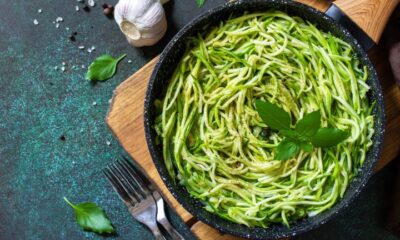

25 Easy Lunch Ideas That Come Together In Less Than…
-


Trader Joe’s Reveal its Most Popular Item
-
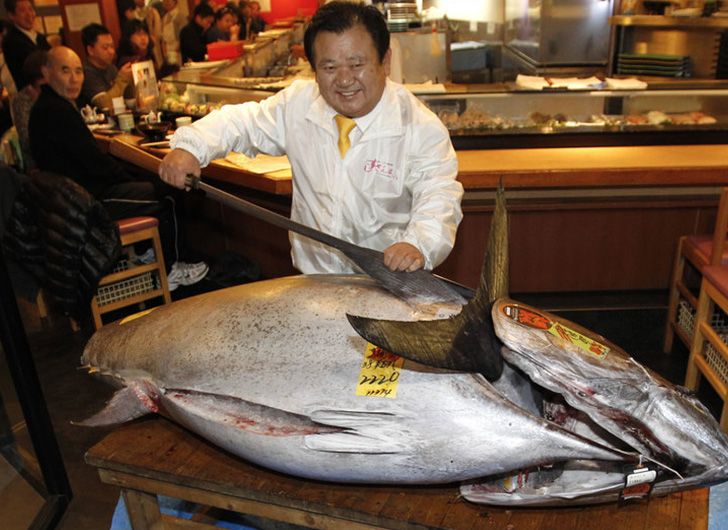

Catch of the Day! Bluefin Tuna Sells for Record $3…
-
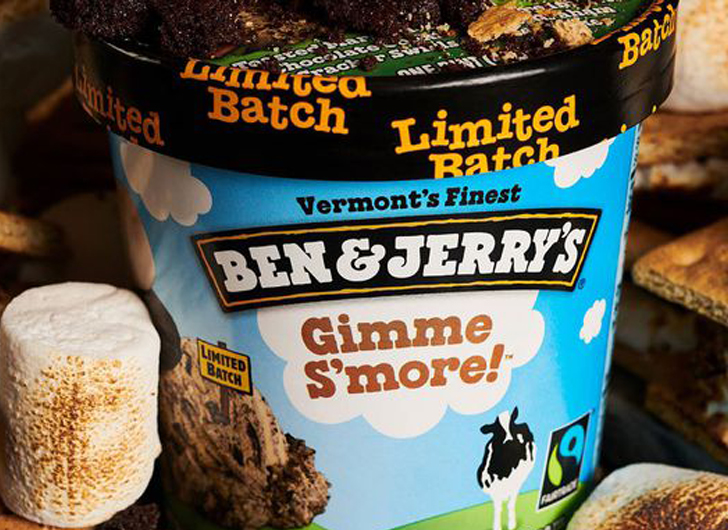

Ben & Jerry’s Promises to Evoke Summer With Their New…
-
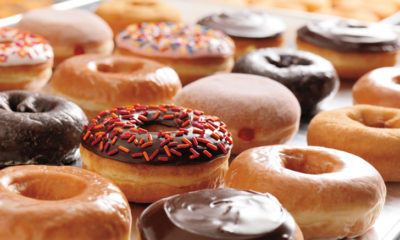

Dunkin’ Giving Away Free Donuts This Friday
-
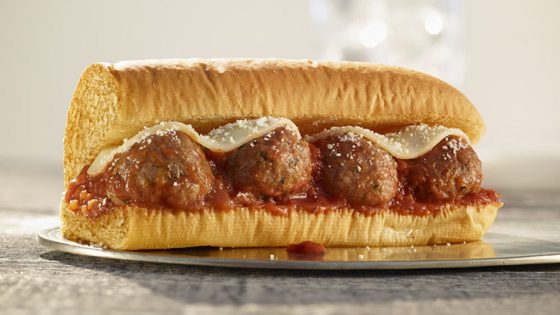

Subway Launching Plant-Based Meatball Sub
-
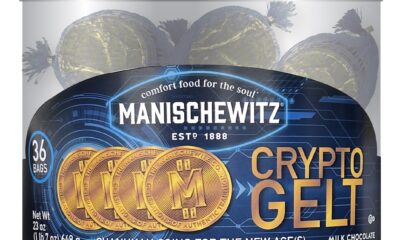

Forget Bitcoin, meet Bite-coin: Kosher brand offers crypto-inspired chocolate for…
-
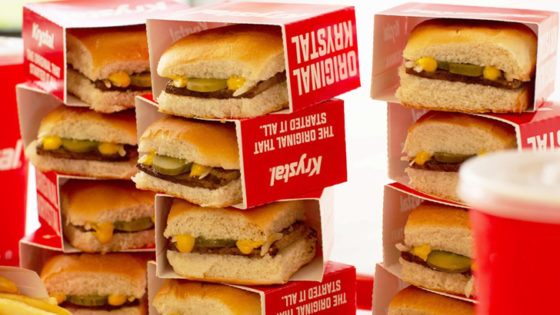

Nation’s Second Oldest Fast Food Chain Files for Bankruptcy
-
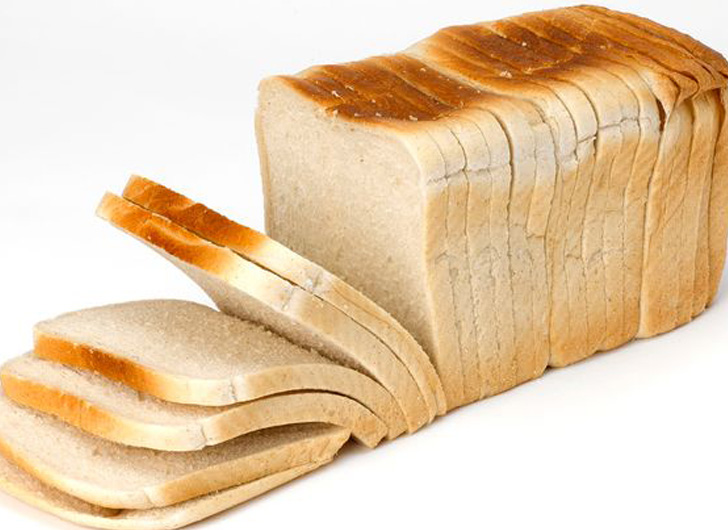

Five Signs You May Be Gluten Sensitive